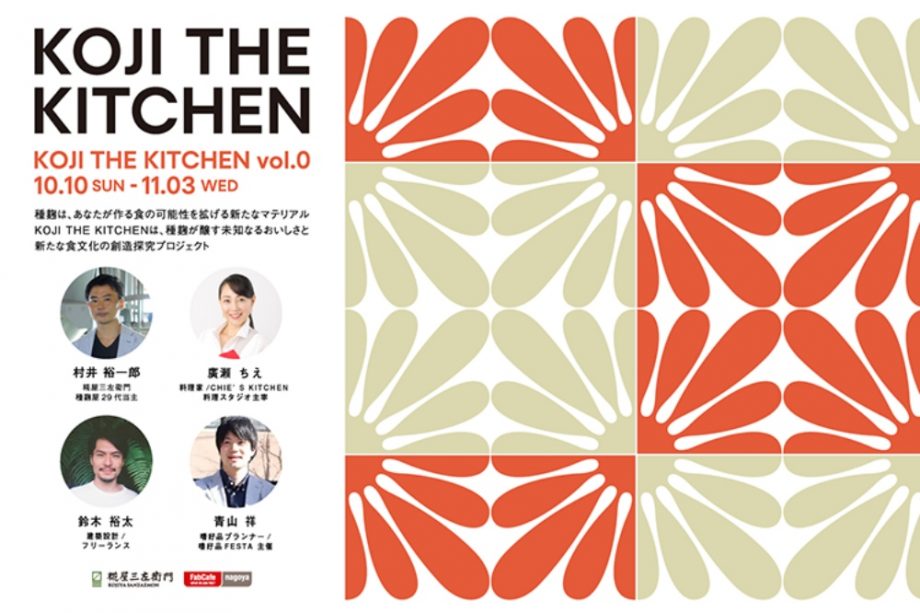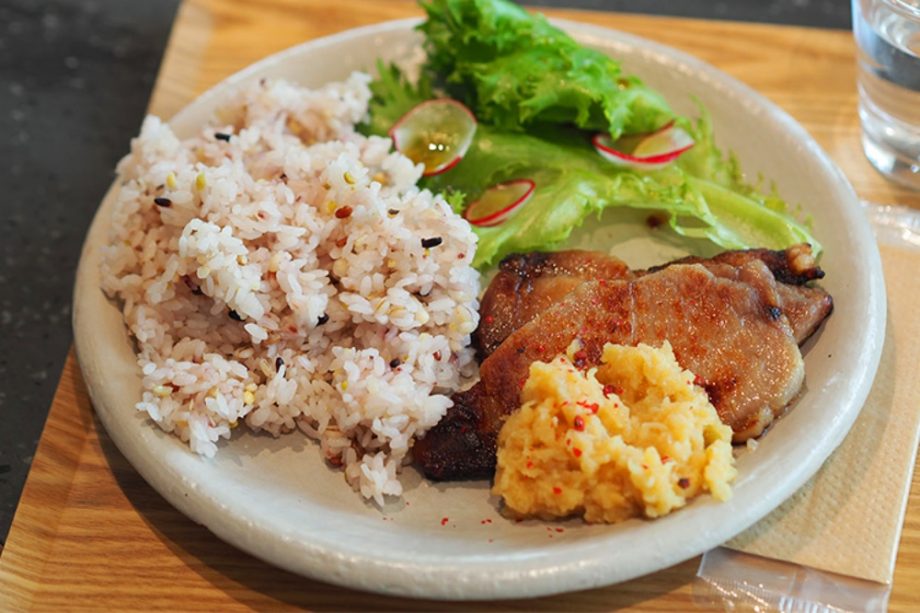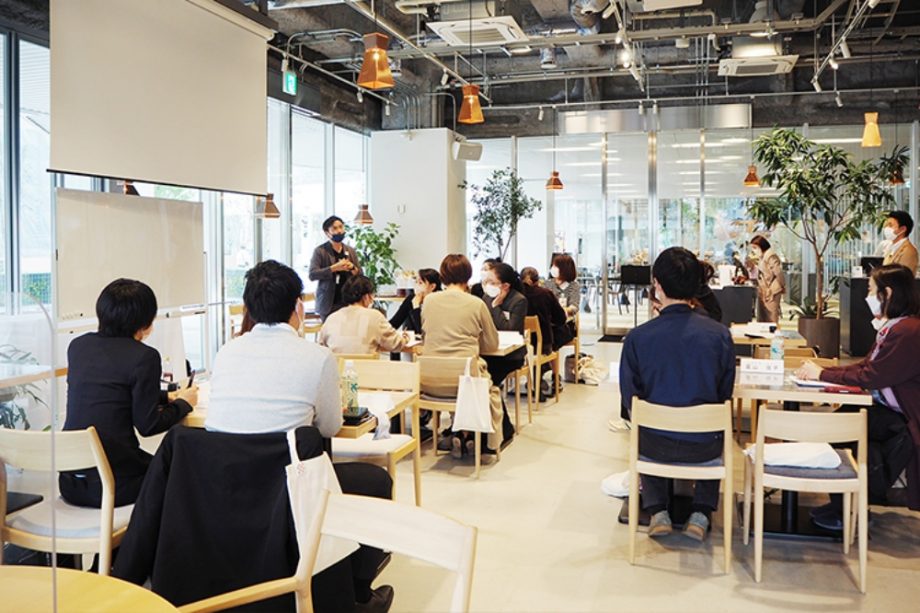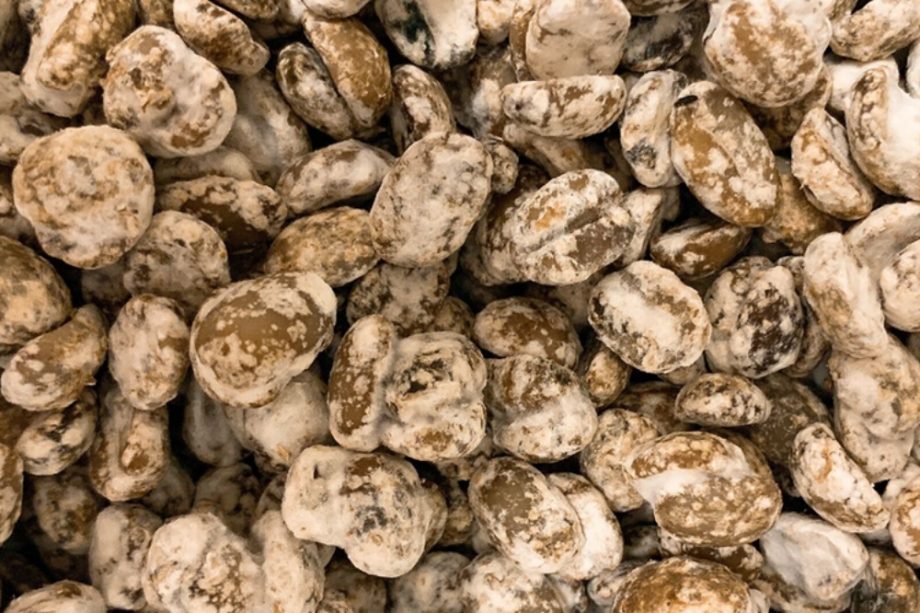Project Case
August 3, 2022
FabCafe Global Editorial Team
Japanese gastronomy cannot be understood without koji, a type of mold used to ferment steamed grains and vegetables like soybeans, rice, barley, or sweet potato, to produce staple ingredients such as soy sauce and miso paste, as well as alcoholic beverages including sake and shōchū.
Kojiya Sanzaemon Ltd. is one of the nation’s most renowned manufacturers and distributors of seed koji, the fermentation starter needed to produce koji. Throughout its 600-year history, the company has mastered the art of making commercial seed koji that is highly valued by many soy sauce and sake breweries.
However, the harsh price competition in what has become an extremely niche industry, as well as the increasing commoditization of their main product, motivated Kojiya Sanzaemon to reach out to Loftwork and FabCafe Nagoya to help find new value for koji from a design management approach.

Seed koji is produced by culturing koji mold on rice and other grains. When the spores are grown enough, they are dried to serve as fermentation starters in other food products.
For this project, we earned inspiration from Kojiya Sanzaemon President and Representative Director, Mr. Yuichiro Murai, who expressed a wish to focus on the concepts of “art” and “hobby” to invite freedom, playfulness and an open approach to koji.
Our goal is to develop creative ways to open-source koji beyond the category of “brewing element” or “Japanese cuisine ingredient”, as well as to cultivate a Japan-rooted fermentation movement that crosses multiple fields and resonates globally. The focus is not on Kojiya Sanzaemon’s positioning in the industry, but rather on questioning the company’s raison d’être, the image and value of koji itself, and the future of fermentation in food, art, science, and society as a whole.

Project members, from left to right: FabCafe Nagoya director and producer Miyuki Ida, Loftwork Creative Director Shuhei Kato, Kojiya Sanzaemon President and Representative Director Yuichiro Murai, Kojiya Sanzaemon New Business Development Managers Haruka Kikuchi and Kaho Yokoyama.
Koji has been attracting attention for quite a long time, but most initiatives focus on its health and beauty benefits. This time, FabCafe Nagoya proposed the theme of “Gastronomy x Koji” to explore fresh reactions from the aspects of taste and enjoyment. This is how KOJI THE KITCHEN was born.
In KOJI THE KITCHEN, “koji” becomes a “verb” with the nuance of “fermenting the kitchen” or even “koji taking over the kitchen”. Its core concept is to open up possibilities to innovate in our food culture and way of living with nature for everyone interested in this micro-organism, in the context of a post-human-centered society. Through a multifaceted approach, we are exploring the broader possibilities of koji through collaborations with experts from the fields of art, science, design, and engineering, and from October 2021 to July 2022, the FabCafe team has already implemented a series of correlated events:
-

(1) Meetup with artists, scientists, and other creators to discuss unexplored applications of koji.
-

(2) Recipe development and tasting at FabCafe.
-

(3) KOJI THE KITCHEN Academy, a two-day seminar led by local food pioneers.
-

(4) Tasting session for media featuring fermented coffee beans.
By layering cross-sector discussions and prototyping, the project has enabled Kojiya Sanzaemon to deepen the understanding of their own vision, and to identify what New Business Development Manager Ms. Haruka Kikuchi describes as their strongest point: “an inquisitive attitude towards technique”.

The project has helped Kojiya Sanzaemon’s strengths and core values.
FabCafe is a unique place where experts from all fields can meet, offer unique perspectives that surprise even experienced industry professionals such as Kojiya Sanzaemon’s, and then get into the kitchen to test their ideas right away.
During the KOJI THE KITCHEN Meetup, the subject of koji was approached from the angles of culture, history and local community, as well as the latest scientific techniques implemented at leading restaurants like noma (Denmark) or El Bulli (Spain).

Creator meetup at FabCafe Nagoya.
After an intense ideation session, food creators Sho Aoyama and Yuutaro Suzuki took on the challenge of coming up with novel applications for koji in the kitchen.
Aoyama developed a unique coffee flavor by fermenting Indonesia Mandelli beans with black koji and Brazil Santos beans with rice koji. Both samples garnered excited reactions from the tasting group, who mentioned the flavor had become sweeter, fruitier, and more refined.

By fermenting the coffee beans, even lower quality beans acquired a refined taste.
On the other hand, Suzuki presented two sauces to go with a sauteed pork recipe: fresh parsley sauce with sour black quinoa koji and a French-style cream sauce with black rice koji. Contrary to the sweet taste commonly associated with koji-derived products such as amazake (a fermented-rice Japanese drink), both sauces stood out for their fresh, slightly vinegary flavor.

This pork sautee recipe was developed with the idea to offer it at FabCafe.
“We are truly inquisitive about the technical process, but until now it has proven difficult for us to see the social significance of our products from the consumer’s point of view,” comments Kojiya Sanzaemon President and Representative Director, Mr. Yuichiro Murai.
The KOJI THE KITCHEN project has changed this reality and helped staff and management at Kojiya Sanzaemon consider the social and cultural context, as well as the marketing concepts, underlying their clients’ strategies.

Lively debate at the KOJI THE KITCHEN Academy.
“Recently, our employees have started commenting on what kinds of miso and sake products our clients make, as well as getting informed about recent market trends. In my own conversations with brewers, I now ask more in-depth questions about the kind of seed koji they want.”
What can we do for you?
Contact us if you are interested in…
- Product ideation, development and prototyping.
- Reassess your company’s vision, goals and future strategy.
- Collaborate with our global creator network to gain new insights and inspiration for your business.
If you would like to purchase Kojiya Sanzaemon’s seed koji or to explore new applications of koji with them, please contact them through the company’s website.
Contact Kojiya Sanzaemon: https://kojiyasanzaemon.store/
Project Outline
- Project client: Kojiya Sanzaemon, Ltd.
- Project time: From October, 2021.
- Project leaders: Miyuki Ida (FabCafe Nagoya director and producer), Shuhei Kato (Loftwork Creative Director), Sho Hosotani (FabCafe Creative Director), Yuichiro Murai (Kojiya Sanzaemon President and Representative Director), Haruka Kikuchi (Kojiya Sanzaemon New Business Development Manager) and Kaho Yokoyama (Kojiya Sanzaemon New Business Development Manager).
-
FabCafe Global Editorial Team
This articles is edited by FabCafe Global.
Please feel free to share your thoughts and opinions on this article with us.
→ Contact usThis articles is edited by FabCafe Global.
Please feel free to share your thoughts and opinions on this article with us.
→ Contact us




